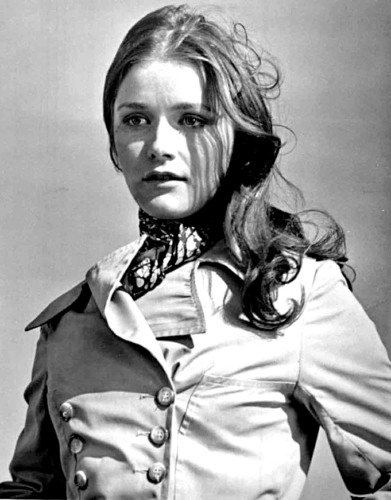
Imagine Lois Lane, and there’s a good chance you see Margot Kidder’s face. The actress, who died May 13 at age 69, played the iconic character for the first time in 1978’s Superman opposite Christopher Reeve and went on to reprise the role in the film’s three sequels. While Kidder will undoubtedly be remembered as that fearless reporter, she’s leaving another legacy, too: her advocacy for mental health awareness.
Kidder’s personal life was often tabloid fodder, never more so than in April 1996 when she went missing for four days. She had been writing a book when a computer virus caused her to lose all her files; the news that her years of work couldn’t be salvaged triggered what she would soon discover was a manic episode with paranoia. She lived on the street for days, until police found her and took her to a psychiatric hospital. Soon after, she was diagnosed with manic depression, a disorder now more commonly known as bipolar disorder.
“What happened to me–the biggest nervous breakdown in history, bar possibly Vivien Leigh’s–is not so uncommon,” Kidder told The Guardian in a 2005 interview. “I’ve had thousands of supportive letters from all over the world. It’s just that mine was public. If you’re gonna fall apart, do it in your own bedroom.”
Some thought this episode signaled the end of Kidder’s career, that she would retreat from the public eye. Instead, she made a point to talk about her experience between acting jobs. “After it was over, I totally understood the need to abolish the stigma attached to people with thought disorders,” she told the Chicago Tribune in 2001. “Those people tend to be treated, even by psychiatrists, as separate from the population, rather than as part of it, but with a problem.”
Kidder previously echoed that sentiment in a 1996 interview with People, where she said, “I just have to accept the fact that this is me, or I ain’t gonna make it.”

By openly discussing her experiences with mental illness during a time when people, especially celebrities, didn’t touch the subject, Kidder showed that anyone can have those struggles—and that it doesn’t make them any less of a human being. Her candor about the subject was instrumental in reducing stigma around mental illness and helped pave the way for other famous women to do the same: Many of today’s biggest stars, ranging from Lena Dunham to Lady Gaga, have followed her lead, speaking up about their mental health in hopes of letting others know they’re not alone.
The stigma around mental illness is unfortunately still present, but the more people talk about their experiences, the more it will, hopefully, continue to dissipate—and we owe some of that progress to Kidder, who not only brought the bold, ultra-cool Lois Lane to life, but also started a much-needed conversation about mental health.


Grok Nation Comment Policy
We welcome thoughtful, grokky comments—keep your negativity and spam to yourself. Please read our Comment Policy before commenting.